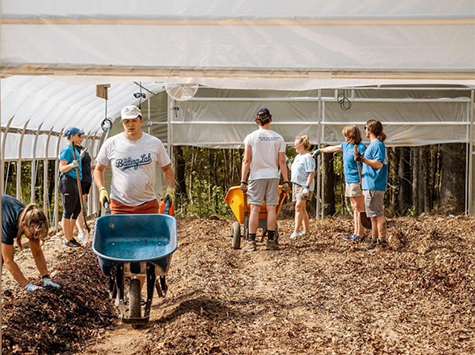
At Catawba Trail Farm in north Durham, the idea of community remains at the forefront of all that they do. A space dedicated to growing, learning, and diligent work, the farm invites all willing to become involved. Recently, students at Duke University had the opportunity to bear witness to these qualities, through a course taught by Dr. Brian McAdoo of Duke’s Nicholas School of the Environment.
The Catawba Trail Farm was once known as Snowhill Plantation, yet despite this co-founder Delphine Sellars refers to it as “a place of healing.” This is because Sellars recognizes the importance of acknowledging the past when attempting to shape the future. Sellars’ focus is on taking land formerly used to abuse enslaved people and transforming it into a place of empowerment and healing. This is seen through the connection between the farm and McAdoo’s course here at Duke. The course, “Exploring Earth Sciences: Surviving Anthropocene in North Carolina,” explores a range of themes such as food insecurity, environmental justice, and global change through the context of environmental studies. Additionally, McAdoo’s course has what is referred to as the ‘Catawba Trail Mission’ where Duke students, in partnership with Catawba Trail Farm, seek to not only target this food insecurity within the community, but also uncover the history hidden within the roots of the farm.
by Gabrielle Douglas, Feb. 24, 2024
